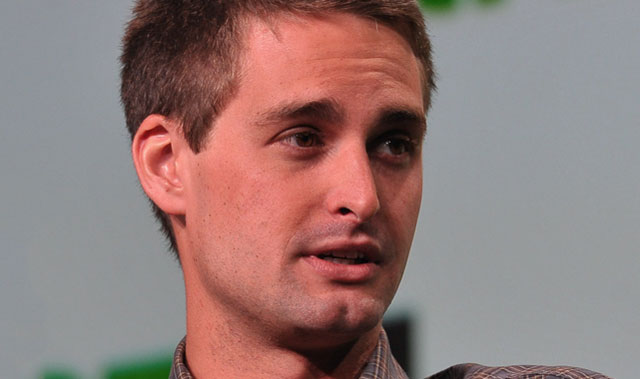
For a guy who just lost about a quarter of his net worth, Snap co-founder Evan Spiegel exuded confidence on his first earnings conference call, explaining away the company’s shortcomings and even throwing shade at his bigger — and far more successful — social media rival, Facebook.
Facebook has been copying some of Snapchat’s most popular features, including its “stories” tool, which lets people post short videos about what’s happening in their day. When confronted about the challenge on the call, Spiegel laughed.
“If you want to be a creative company, you have got to be comfortable with and enjoy the fact that people copy your products if you make great stuff,” he said. “Just because Yahoo has a search box doesn’t mean they’re Google,” he added, referring to the competition between the two Internet search companies in the late 1990s and early 2000s. Google won.
After reporting revenue and user growth that missed estimates, Spiegel spoke as if the quarter was a success.
He deflected questions and concerns by explaining that people may just not understand the value of his platform yet, or the company’s unique business model.
For advertisers, the biggest hurdle is “education” about how effective Snap’s products can be, he said. And when it comes to adding users, he said Snap doesn’t stoop to the “growth hacking” tactics of rivals, like asking people to add all their phone contacts as friends, which he views as unsustainable. It was a subtle dig at Facebook, which routinely suggests friends to add.
The call marked Spiegel’s debut as an executive publicly answering questions about his company, after much practice during Snap’s IPO roadshow with investors behind closed doors.
Spiegel, who has a reputation for secrecy, rarely gives interviews or makes appearances at conferences. On the call on Wednesday, he took command, answering most questions in a rapid, excited tone.
Still, his self-assured explanations didn’t help the stock. It fell more than 25% in after-hours trading on Wednesday, erasing most of Snap’s gains since its IPO at US$17/share.

On Thursday morning, it was still down more than 21% in pre-market trading.
The Los Angeles-based company said it added 8m daily active users in the period, for a total of 166m, with growth from a year earlier slowing to 36%. First-quarter revenue of $149,6m also missed the $158,6m average analyst estimate.
Wednesday’s drop meant Spiegel and co-founder Bobby Murphy each lost more than $1bn, at least on paper.
Many companies that just reported disappointing numbers might seek to soften the blow on their earnings calls by delivering more insight into how the numbers will improve in the future. But Snap said it has no plans to give any financial guidance, because the company doesn’t want to make short-sighted decisions for the benefit of quarterly results.
When asked what to look forward to from Snap’s products, Spiegel laughed again.
“I think, at this point, we’re kind of famous for not giving guidance on the product pipeline,” he said. “But we’re obviously really excited about it and we love surprising our community.
“It should be a fun rest of the year,” he said. — (c) 2017 Bloomberg LP




